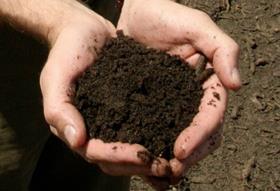
A new EU-funded project is aiming to explore how plastic debris is affecting soil biodiversity, soil functions, related ecosystem services and agricultural productivity.
The impacts of plastic debris on soil health are largely unknown despite equal, or possibly greater, amounts of plastics entering soils than in rivers, seas and oceans, according to the project brief.
The EU-funded MINAGRIS (MIcro- and Nano-plastics in AGRIcultural Soils) project will undertake experiments in 11 case studies across Europe, including one in the UK, working alongside stakeholders across the agricultural community.
In the UK, the Countryside and Community Research Institute (CCRI) within the University of Gloucestershire will lead the dissemination of the research findings, investigate the advice available to farmers surrounding plastic use in agriculture, and work with UK horticultural growers and stakeholders.
The CCRI team comprises Professor Julie Ingram, Associate Professor Jane Mills and Dr Charlotte Chivers.
'Little attention paid to soils'
Ingram, who will be leading the work in the UK, said: “This is a very exciting project as whilst there has been extensive research into the impacts of plastics on aquatic environments, little attention has been paid to soils, despite the importance of soil biodiversity.
“We look forward to supporting a team of highly experienced scientists across Europe to fully assess the environmental impacts of plastics on soil health, before exploring ways of reducing farmer reliance on products containing plastics.”
Plastic has many uses in agriculture. For example, mulches used for weed control often contain plastic, as do tractor tyres and some historically applied agrichemicals.
However, the impacts of the resulting plastic debris left in the soil are little known, particularly when combined with other contaminants such as pesticides and pharmaceuticals.
Once the impacts of plastics on soil health are established, the project will then provide farmers and other stakeholders with tools and guidance on how to assess their exposure and help them to transition away from using plastic-based products.



